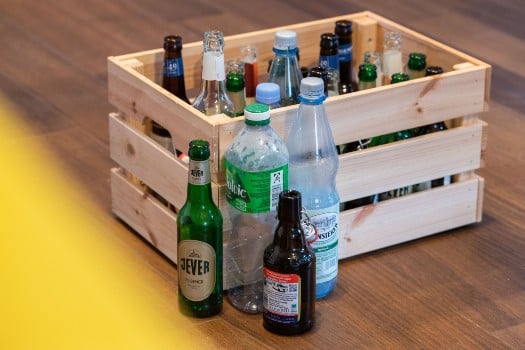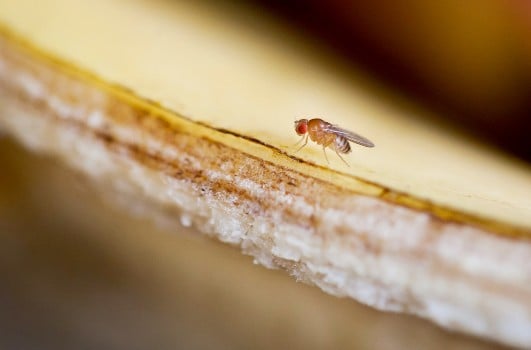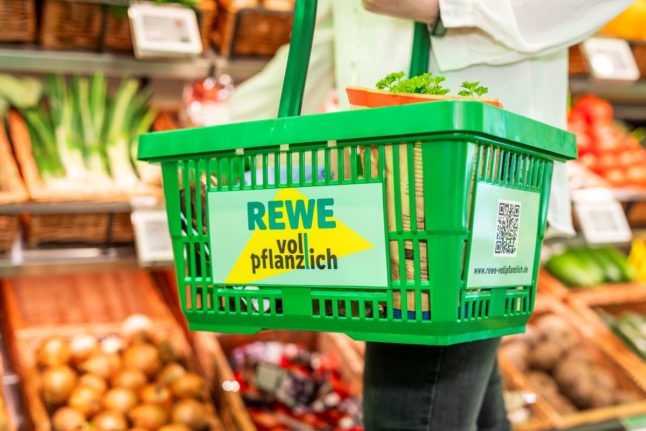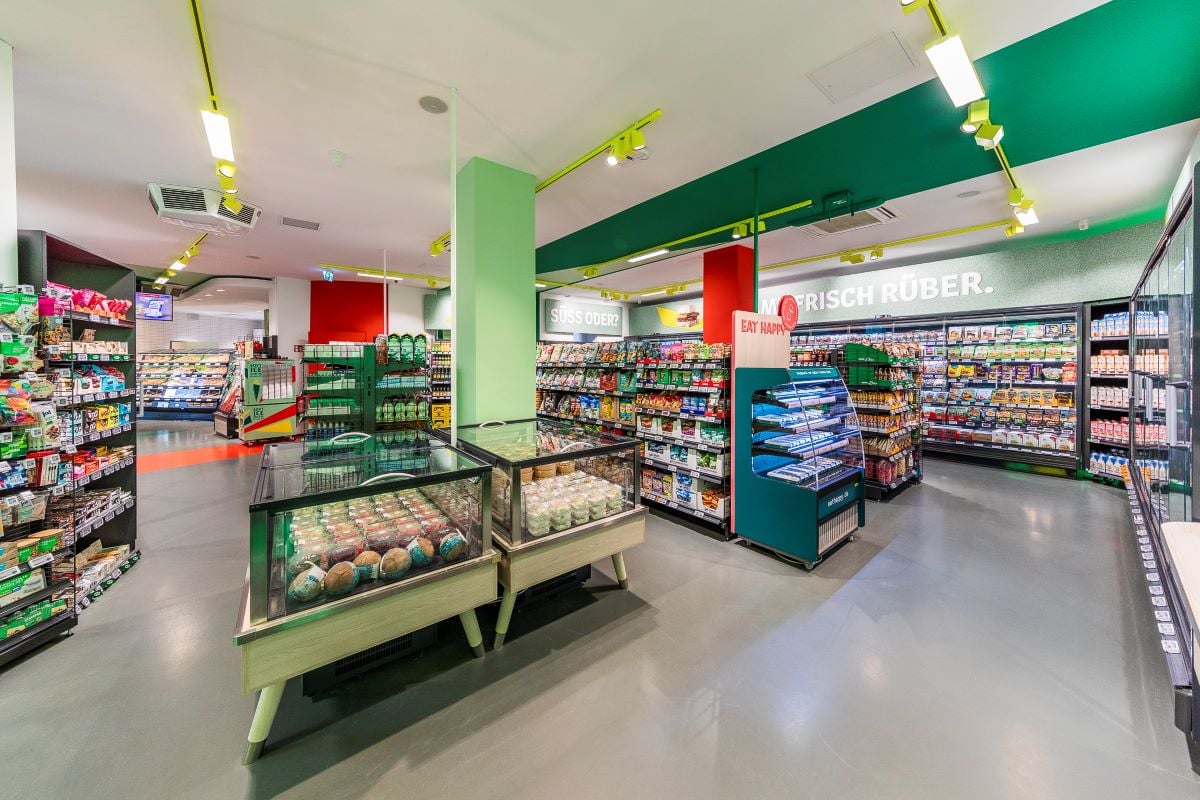Warm springs and summer in Germany is a time when tiny critters get in your face, bite your arms and generally behave in an irritating way. In hot years the wasps are out in force (at least later in the summer); in wet years the mosquitos have a field day.
But whatever the weather is like you’re sure to have a fruit fly infestation in your kitchen if you’re not careful. So what can you do about the little pests?
A single female fruit fly can lay up to 400 eggs a day meaning that within a very short period of time a black cloud will fly up into your face every time you open the bin or stick your hand into the fruit bowl.
While the task of keeping fruit flies at bay sometimes seems hopeless there are some simple tricks that ensure the infestation doesn’t get out of hand.
Keep things ship shape
This might seem like an obvious one, but which of us hasn’t on occasion left a few plates in the sink to clean up the next day? While you might get away with that kind of behaviour in the colder months of the year, it really isn’t advisable when temperatures outside go above 19C.
Fruit flies will feed on left over bits of food, especially if they are sugary. Washing up plates and cleaning surfaces immediately after you have eaten is one sure way of keeping the plague at bay.
More importantly still, you should empty out you bins daily. This especially goes for organic waste which, if you have it, you will have noticed is a breeding ground for the miniature flies.
Besides being attracted to sugar, fruit flies also like yeast. In fact Belgium scientists found out back in 2014 that the same smell that beer aficionados love about a good pint is also what attracts fruit flies – apparently it’s a strategy developed by yeast that lures the flies into spreading the microbe to new places.
The downside is that open or half empty beer bottles will attract fruit flies to your kitchen. So clean them thoroughly or, even better, take them down to exchange for Pfand at your nearest drinks store.

Setting traps
There are a couple of tried and tested traps that Germans set in order to catch their fruit flies.
The classic trap is a cup containing a mixture of vinegar, fruit juice and washing-up liquid. If you cover the cup in clingfilm and pierce holes in the plastic the flies will crawl in, attracted by the smell but won’t be able to get back out. The washing up liquid breaks the surface tension, ensuring that the flies drown in the sweet solution.
SEE ALSO: Nazis ‘wanted to use mosquitoes as a weapon’
This being Germany, there is also a Bio version. You can put a banana in an open plastic bag. Wait until a load of flies have crawled before carefully closing the bag. Then take it outside where you can release the flies back into nature thus ensuring an honourable draw in which neither side suffers long term consequences.
Another trap which the website wohngueck.de claims to be particularly effective involves mixing yeast, sugar and washing up liquid in a bottle (preferably one with a long neck.)
Scaring them away
Just as there are smells that attract fruit flies, there are others which deter them from sticking around.
One such deterrent is lemon juice mixed with cloves. This is apparently also an odour that wasps and mosquitos simply can’t stand.
There are various herbs that release smells that are discomforting to fruit flies. Basil, lavender, mint and chives are all said to help keep the little beasts away.
Other kitchen pests
Another common headache in the German kitchen is an infestation with kitchen moths, which can quickly clog up and ruin your non-perishable stores.
While it is possible to use a chemical agent against the moths (stores like DM and Rossmann have things like sticky traps that you can put on your walls to catch moths), there is a really interesting remedy for this that is favoured in many German kitchens – setting other little flies on them.
It might sound like a silly idea to address an infestation by starting another one, but ichneumon (German: Schlupfwespen) are tiny little flies that live off the eggs of kitchen moths, yet are themselves completely harmless.
According to the environmental news site utopia.de the ichneumon lay their eggs next to the moth’s egg. When the ichneumon eggs hatch they eat all the moth eggs, thus tackling the problem at its root.
And when there are no more moth eggs to be eaten, the ichneumon lose their food source and die too.
SEE ALSO: How to reduce your climate impact as an international resident




 Please whitelist us to continue reading.
Please whitelist us to continue reading.
Member comments